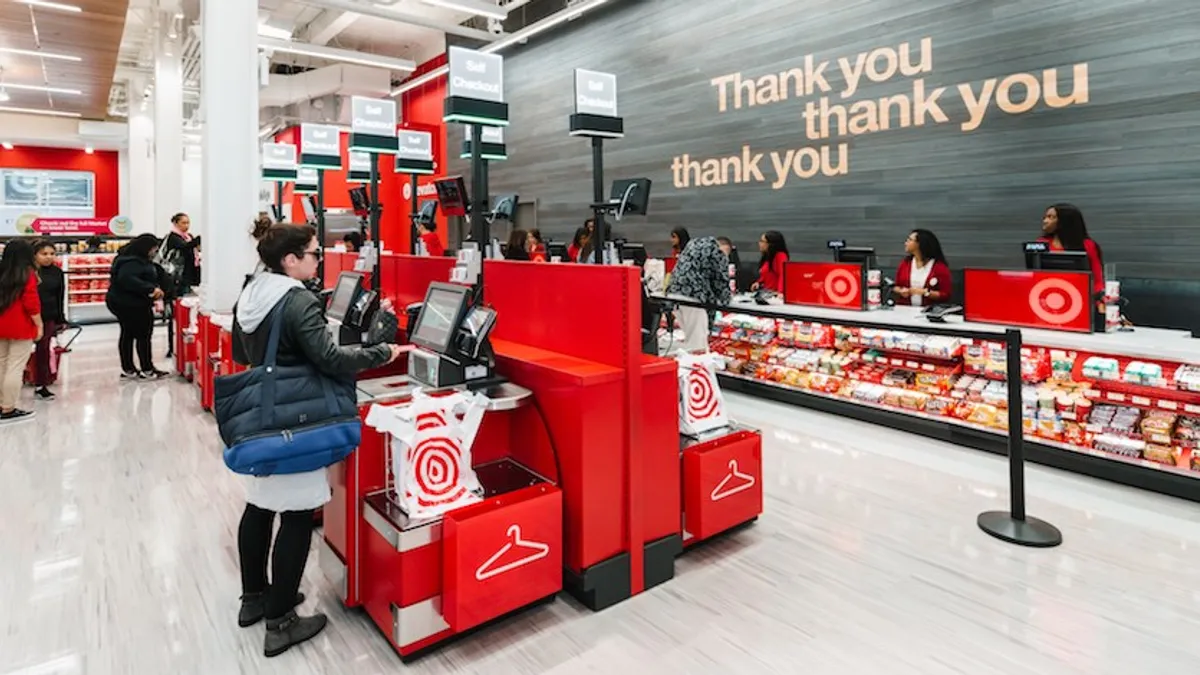Dive Brief:
- The scale of mega retailer Target gives it leverage over suppliers most other companies don't have, giving it an advantage as tariff increases start to bite.
- Target has communicated to its suppliers the retailer will not be raising prices for consumers nor accepting higher prices from suppliers as a result of existing and forthcoming tariffs on imported Chinese goods.
- "Our expectation is that you will develop the appropriate contingency plans so that we don’t have to pass price increases along to our guests," wrote Target Executive Vice President and Chief Merchandising Officer Mark Tritton in a memo, according to multiple outlets. Oregon Public Broadcasting was first to report the news.
Dive Insight:
Tritton reportedly sent the message to its suppliers in the days running up to the Sept. 1 implementation date of the first batch of list four tariffs. The Trump administration split list four into two phases, the first taking effect Sept. 1, the second Dec. 15. "Just in case some of the tariffs would have an impact on U.S. customers," President Trump told reporters, referencing the holiday shopping season as the reason for the split. Target CEO Brian Cornell said he was "encouraged" by the delay on an August earnings call.
The U.S.-China trade war is starting to create a stark contrast between which suppliers and retailers have the power to shift the burden away from their own balance sheets and which do not. Target, which has an assortment dependent on in-house brands, does quite a lot of importing from China itself, while also purchasing products from suppliers that do that same.
An analyst on the August call put the percentage of Target's own imports at 80% exposed to list four, though Cornell called that number overstated.
Supplier negotiations have been a hallmark of tariff mitigations strategies, mentioned on earnings calls by executives at retailers from Big Lots to Best Buy to Dick's to Pier One. Discount retailers have so far been particularly adept at these negotiations.
Still, Target, like Walmart and other massive U.S. retailers, holds the power to dictate vendor terms. Though Walmart warned new tariffs would raise prices on its shelves back in May, by the time the company announced its strong second-quarter earnings in mid-August, price hikes started to look less likely — in fact, the retailer had lowered some prices.
On top of a vast and geographically diversified supplier base, Walmart has the marketplace power to dictate vendor behavior.
"What Walmart will be able to to do is they’d get the vendors to share the pain. That's just part of the game of dealing with Walmart. Walmart expects you to help them be the low-cost provider," Moody's Vice President Charles O'Shea told Supply Chain Dive in August.
Target seems to be playing the same card with this move, suggesting the pain of the trade war may be felt more keenly up the supply chain rather than down.















